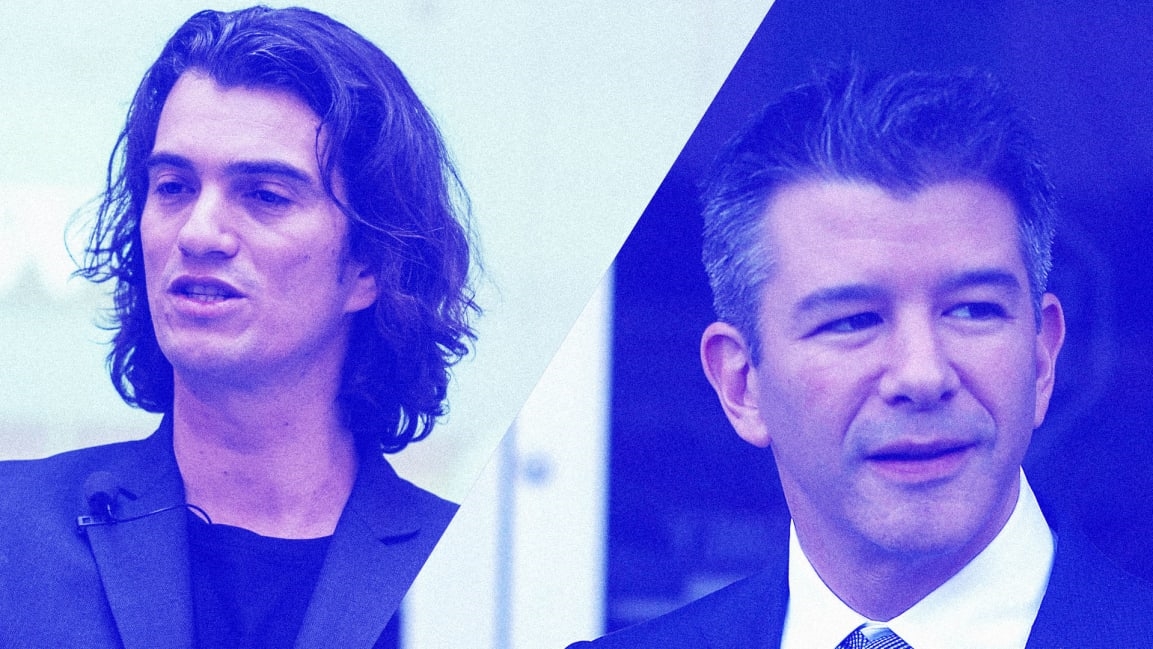What venture capital investors need to learn from the mistakes of WeWork and Uber
It’s official. Adam Neumann is stepping down as CEO of WeWork, adding another chapter to the great drama of Silicon Valley and once again highlighting one of its essential challenges: How do you manage and harness a genius?
People are complicated. Without Mr. Neumann’s vision, drive, and ambition, there would be no WeWork. And for all of his flaws, Neumann fundamentally altered the way people now occupy commercial real estate all over the world. That’s a remarkable achievement. But the guy who had the passion, brilliance, and vision to create WeWork is the same guy whose flaws are now on full display to the world.
Sometimes startup founders have the self-awareness, gravitas, and business acumen to create revolutionary businesses and lead them from the private markets onto the main stage via an IPO. However, it seems unrealistic for venture capital investors to expect every founder to possess all of the skills required to both execute a vision and take a company public. And even if they are qualified to do the job, fame and wealth can change people—and when left unchecked, can leave you with a very different founder than you started with.
Without people like Adam Neumann or Travis Kalanick or Elon Musk, startups that change entire industries would never exist. We need them. But with those visionaries come the same potential flaws that make us all human. And that’s where VCs need to step up. Choosing never to back a startup run by a slightly crazy genius isn’t an option—if a lack of variability and suspense is what you want, pick a new profession. Also, simply choosing to just flip the switch once a startup nears an IPO isn’t the no-brainer that everyone outside the venture capital ecosystem believes is common sense.
Look at Uber. The board felt they had to remove Kalanick—with whom I’ve worked for many years—and while he has his flaws, picking his polar opposite just didn’t make sense. That change helped calm the waters and helped avoid more public criticism of the board and the company, but it happened without enough regard to perception around how the company would innovate going forward. It turns out, the lack of thought around anything other than crisis communications and damage control was disastrous. The markets lack confidence in Uber. The IPO sputtered, the stock has faltered, and Uber’s shareholders (of which I am one) have not benefited in the least.
The solution has to come much, much earlier in the process. Yes, venture capital is a highly competitive business. Yes, each VC partnership needs access to the highest caliber founders and the most radical ideas to succeed. And yes, VCs exist to produce returns for their underlying investors. However, these dynamics are not mutually exclusive.
As a VC, it’s our responsibility to shepherd early-stage startups through the company’s life cycle. This includes the mentorship and guidance that VCs provide founders along the company’s journey. There obviously isn’t a simple playbook for success, as each founder, industry, and company brings a different set of circumstances. But proactively working to mitigate “founder-led risk” is the responsibility of all board members and the funds they represent.
To work, this has to be a collective-action solution because every VC wants to “win the deal,” every time. Even funds that have long been considered the gold standard find themselves in competitive rounds of financing. Including an onerous control provision or pushing back on a proposed share class structure could cost you a seat at the table for the next Facebook. With that being said, watching your fund’s stake in a company get marked up to a valuation of $47 billion and then seeing it plummet down to $8 billion (or wherever WeWork lands) isn’t great business either.
It’s an easy thing to say and a hard thing to do. Venture capital is a business that’s built on reputation—both with LPs and founders. Some VCs will choose to give founders the terms and conditions they want. But if the majority of the industry starts demanding more, the norms will eventually change. In the short term, that may not be best for any one fund’s performance. But long term, it’d help the entire industry.
Bradley Tusk is the founder and CEO of Tusk Ventures.
(48)



